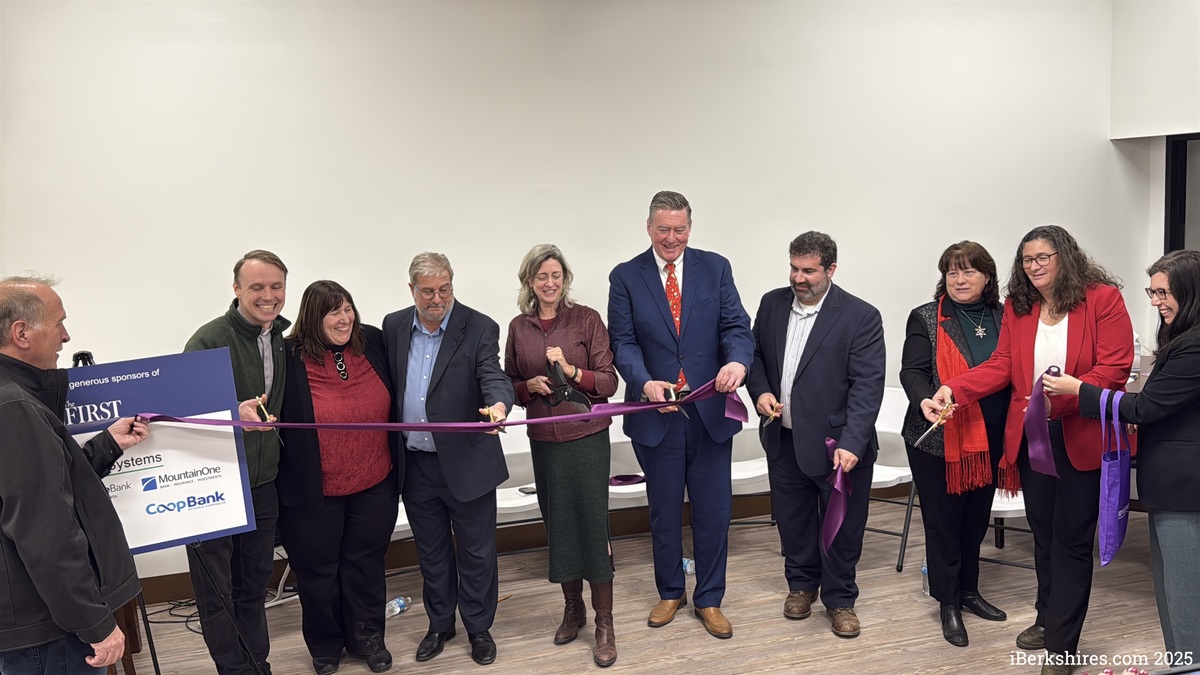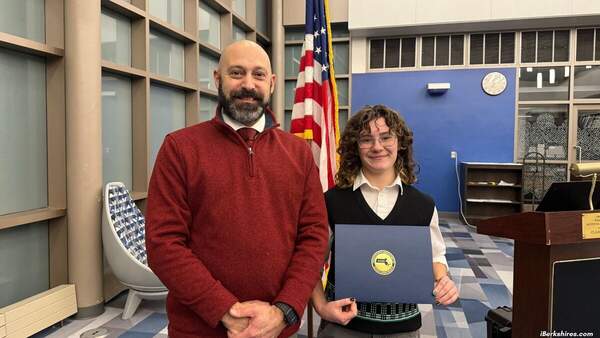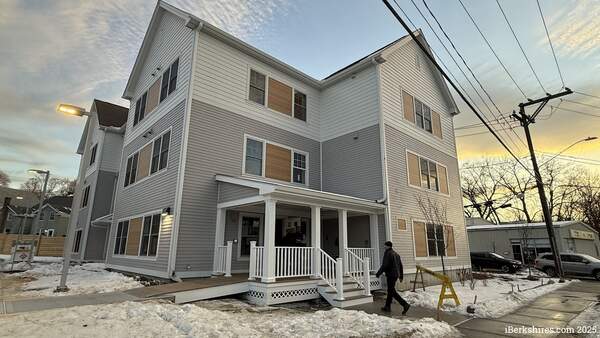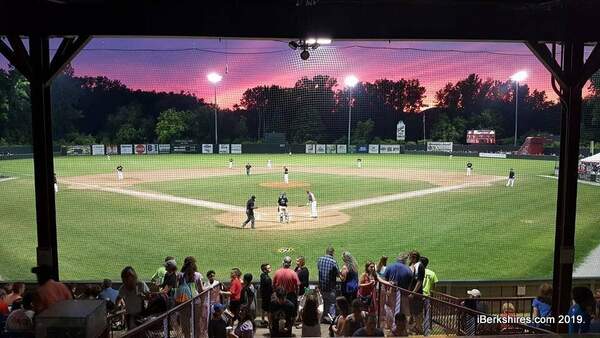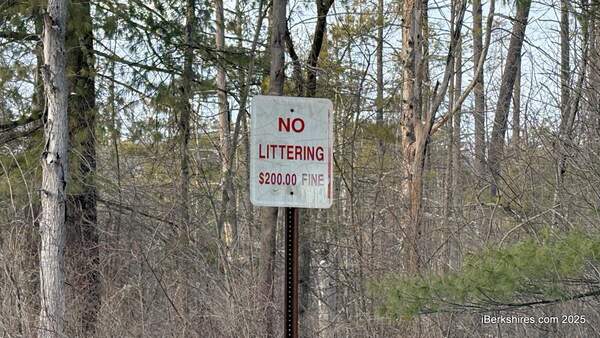Pittsfield Residents Air Concerns About BCC Turf Field
 A public information session at Berkshire Community College offered a chance for residents to ask questions and air concerns over the planned turf field being installed on campus. A public information session at Berkshire Community College offered a chance for residents to ask questions and air concerns over the planned turf field being installed on campus. |
PITTSFIELD, Mass. — Environmental and health concerns were aired Monday night over a community turf field to be constructed on the Berkshire Community College grounds.
Residents filed into the Susan B. Anthony Lounge on campus for the information session regarding the development of the $2.6 million artificial field being funded by donations and state and city funds.
Resident Carol Zullo said one of the biggest concerns was the alleged health hazards of the rubber "crumbs" used as infill, which many believe can cause cancer when athletes come in contact with them or if they find their way into the water supply.
"It has the great potential of risk both environmentally and human," Zullo said. "Why is the commonwealth and BCC going ahead with this project?"
Michael MacDonald, a member of the community turf field committee, the group which initially brought the project to BCC three years ago, said there has not been a conclusive report that states the crumbs cause cancer and reported claims are anecdotal.
Zullo countered that many of the studies do not properly measure all chemical in the rubber or do not study it for a correct amount of time.
MacDonald said the committee also had this fear after hearing stories about the crumbs being dangerous and did its own research.
"We have done our due diligence, we hired expert consultants that do this, we had the industry come in and speak to us, and we have asked them the questions that you are asking," MacDonald said. "We feel ... that what we are proposing is safe and will be better for sports activity in Pittsfield."
He said because the committee did not want the crumbs to be even an issue, it specified in the bids that instead of using crumbs made from tires, the field would be made from "Nike grind," which is made from shoes or a coated rubber crumb.
Eric Bernardin of engineering firm Fuss & O’Neill said the field will be perched up so any water moving down from West Street into the wetlands will not pick up the crumbs. The field has an infiltration system that can handle up to 10.5 inches of rainfall. Rain water that hits the field will be filtered down through the field and released through drains.
He added water itself will not cause the crumbs to vacate the field and the crumbs will only leave the designated area if they are kicked up during a sporting event or if they are plowed off during snow removal, which will not be the case at BCC.
He added that if the school maintains the field properly and handles snow removal correctly, the rubber crumbs should not be an issue.
Zullo also if the filed would be disinfected; MacDonald said there has been no discussion of this yet.
Zullo asked if the field was actually under such distress that it needed to be replaced. She said she used to play soccer on the field in the 1980s and it held up fine.
Coaches who attended the meeting said the field sees heavy use and games are often delayed days because of rain. Also, many high school sports teams must travel to play in tournaments that mandate a turf field.
State Rep. Tricia Farley-Bouvier commended but those who brought up concerns and those who have worked on moving the project forward. She asked opponents to take into account the increased danger of concussion on normal fields compared to turf and cautioned residents of the risk of undoing all the hard work put toward the field.
"We need to continue to look at these studies and if we need to make a change in the future ... we can make those changes, but to take what we have done so far in this process and put it at risk I don't think is a good idea," she said.
.JPG) |
MacDonald added that the $2.6 million for the project includes funds to properly maintain the field, which is estimated to cost $7,000 a year, and the means to raise funds to replace the rubber infield after its eight-year life span and the grasslike fiber after its 12-year lifespan. He said this should keep fees down for potential users.
The city kicked in $200,000 toward the project and the state has given $1.1 million. He said the field itself is only part of the project and much of the funds be used to correct watershed issues created from a prior field project from 2001.
Emily Stockman, a professional wetlands scientist of Stockman Associates LLC, said she worked with the turf committee and BCC environmental faculty to assess the area.
She said the vernal pool complex, areas that contain standing water for at least two months during the growing season and support amphibian species, south of the proposed field have been holding less water since the 2001 project.
She added since 2001, the 14-acre watershed area has dropped to 1.6 acres because of changes in grading. She said the proposed grading changes would alter the land so it mimics prior natural grading and bring the watershed area to 11 acres.
"We are not getting back up to our full 14 acres, but it is certainly quite an increase from the 1.6 that we have today," she said.
She said the turf field project was out of the Conservation Commission's jurisdiction because of its distance from wetlands and only these proposed improvements brought the project into the commission's purview.
She added that there will be constant studies of run off to make sure the field is not causing any impacts.
Tags: athletic complex, BCC, playing fields, turf field,

